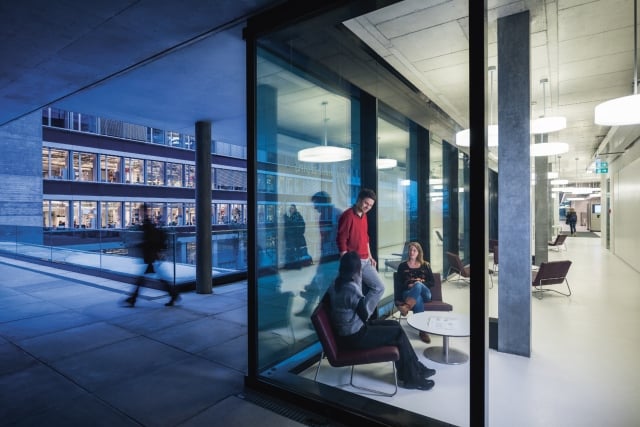The senate voted overwhelmingly in favour of the proposal despite government opposition.
The planned changes affect graduates of Swiss universities and technical institutes from so-called 'third countries', as nations outside the European Union (EU) and European Free Trade Association (EFTA) are known.
Under the plan, graduates from these countries who have skills required by the Swiss workforce would no longer be subject to the quotas which normally apply to third-country nationals who want to work in Switzerland.
By law, people from these third countries are currently only admitted if it is considered to be “in the general economic interest” of Switzerland and if yearly quotas for third-country nationals (a total of 8,500 this year) have not yet been filled.
Read also: An essential guide to Swiss work permits
The result of this policy is that only around 10–15 percent of non-EU/EFTA graduates of Swiss higher education institutions stay on in the country, according to figures from Swiss industry group economiesuisse and quoted by Swiss newspaper NZZ.
The total number of graduates in this group is not high – just under 3,000 in 2017.
But for Swiss MP Marcel Dobler – the politician behind the proposal to scrap the quota system for these graduates – the fact that most of them do not remain in Switzerland is a problem on a number of fronts.
Read also: Switzerland has 'the third best university system in the world'
Firstly, Switzerland is paying a lot of money to educate these people without reaping the benefits.
Secondly, over 50 percent of these students have studied mathematics, informatics, natural sciences, and technics (the ‘so-called’ MINT subjects) – precisely the areas where Switzerland has a skills shortage.
Lastly, as Dobler also pointed out in the text of his original motion, these graduates are already well-integrated in Switzerland. They can be placed in Swiss companies immediately and many of them are likely to set up start-ups after graduating, making them the sort of innovative people the country needs.
Government in opposition to plans
The government has previously rejected Dobler's motion saying that exceptions shouldn’t be made to the quota system for graduates from third countries.
It has been argued that these graduates with work “of high academic or economic interest” are already often exempt from the standard requirement that Swiss employers give preference to suitably-qualified EU/EFTA nationals when hiring.
In addition, according to the legislation, these graduates are also “admitted for a period of six months following completion of their education or training in Switzerland in order to find suitable work”.
But the senate on Tuesday followed the lead of the lower house of the Swiss parliament by voting for this group of qualified foreign staff to be exempt from the quota system altogether.
Read also: 'For Indians, the silence in Switzerland can be deafening'
Now the government must draw up draft legislation to this effect. This will then go back to the two houses of parliament for discussion.
For Dobler it is a small victory. But he also notes that other problems remain. These include the fact that students from third countries cannot complete full-time practical placements.
He also believes that the six-month period given to students to find work after their studies is not long enough.
For its part, economiesuisse would like a one-off six-month extension to this period to be implemented and has called for a two-year job-search period for MINT graduates.
Are you a non-EU graduate of a Swiss university? Do you have a story to tell us about your experiences in the country? Email us here.



 Please whitelist us to continue reading.
Please whitelist us to continue reading.
Member comments